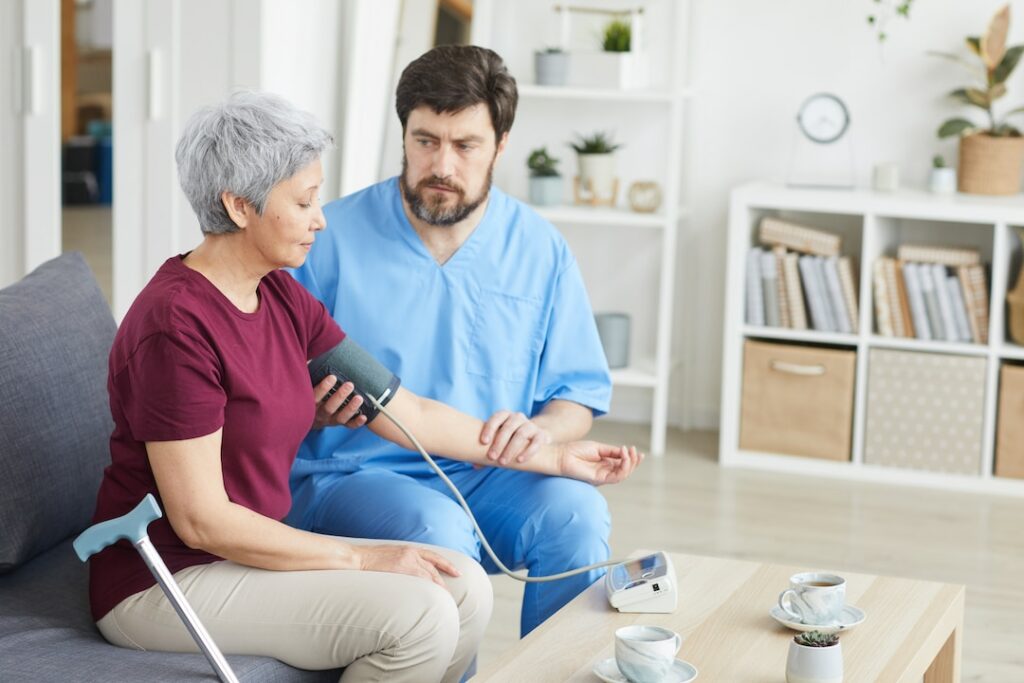Hypertension is a long-term condition that affects many people. It can damage the kidneys over time and lead to kidney failure. Early diagnosis and treatment of hypertension are essential to preventing kidney damage. If you are at risk for hypertension, make sure to see your doctor regularly for checkups.
What is Hypertension?
Hypertension, or high blood pressure, is caused by the excessive force of blood pushing against the walls of the arteries. This can damage the blood vessels in the kidneys over time and lead to kidney failure.
What are the Symptoms of Hypertension?
The symptoms of hypertension can vary from person to person. Some people may experience no symptoms at all. For some, symptoms may include:
- Headache
- Dizziness
- Blurred vision
- Nausea
- Chest pain
- Shortness of breath
If you experience any of these symptoms, see your doctor right away. Early diagnosis and treatment of hypertension are essential to preventing kidney damage from high blood pressure.
How is Hypertension Treated?
If you are diagnosed with hypertension, your doctor will likely prescribe medication to help control your blood pressure. You will also need to make lifestyle changes, such as eating a healthy diet and getting regular exercise. Following your doctor’s instructions is essential to protecting your kidneys from damage.
How is CKD Related to Hypertension?
High blood pressure can injure the kidneys’ blood vessels, limiting their function. When the force of blood flow is high, blood vessels expand and allow for greater blood flow. This stretching scars and weakens blood vessels throughout the body, including those in the kidneys.
If the kidneys’ blood vessels are damaged, they may no longer perform this function. Even more water in the blood vessels can elevate blood pressure even higher, culminating in CKD.
Kidney damage caused by hypertension can often be reversed if it is caught early enough. However, if left untreated, it can lead to kidney failure. It is important to get regular checkups and follow your doctor’s instructions if you have hypertension. By doing so, you can protect your kidneys and keep them functioning properly.
The Symptoms of CKD
- Nausea
- Loss of appetite
- Fatigue and weakness
- Sleep problems
- Urinating more or less than normal
- Muscle cramps
- Swelling of feet and ankles
- Dry and itchy skin
If you experience any of these symptoms, see your doctor right away. Early diagnosis and treatment of CKD are essential to preventing kidney failure.
How is CKD Treated?
There is no one-size-fits-all treatment for CKD. Treatment will vary depending on the stage of the disease and how well your kidneys are functioning. You may need to make dietary changes, take medication, or undergo dialysis or a kidney transplant.
It is important to follow your doctor’s instructions and keep all of your appointments. By doing so, you can slow the progression of CKD and protect your kidneys from further damage.
Hypertension and CKD are both dangerous conditions. They can cause serious health problems if left untreated. It is important to get regular checkups and follow your doctor’s instructions if you have either of these conditions. By doing so, you can protect your kidneys and keep them functioning properly.
How Texas Kidney Institute Can Help
If you are at risk for hypertension or CKD, or if you have been diagnosed with either condition, Texas Kidney Institute can help. We offer a variety of services to help you manage your condition and protect your kidneys.
Our team of experts will work with you to create a personalized treatment plan that meets your needs.
We offer support services to help you manage your condition. Our team can provide educational materials and counseling services to help you understand your condition and make the best choices for your health.
For more information on our services or to schedule an appointment, contact us today.

